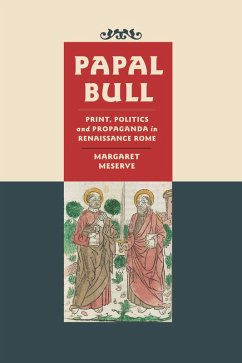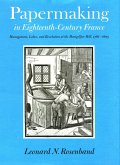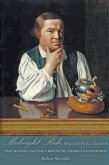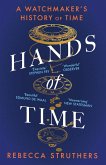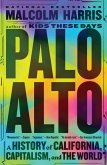How did Europe's oldest political institution come to grips with the disruptive new technology of print?Printing thrived after it came to Rome in the 1460s. Renaissance scholars, poets, and pilgrims in the Eternal City formed a ready market for mass-produced books. But Rome was also a capital city-seat of the Renaissance papacy, home to its bureaucracy, and a hub of international diplomacy-and print played a role in these circles, too. In Papal Bull, Margaret Meserve uncovers a critical new dimension of the history of early Italian printing by revealing how the Renaissance popes wielded print as a political tool. Over half a century of war and controversy-from approximately 1470 to 1520-the papacy and its agents deployed printed texts to potent effect, excommunicating enemies, pursuing diplomatic alliances, condemning heretics, publishing indulgences, promoting new traditions, and luring pilgrims and their money to the papal city. Early modern historians have long stressed the innovative press campaigns of the Protestant Reformers, but Meserve shows that the popes were even earlier adopters of the new technology, deploying mass communication many decades before Luther. The papacy astutely exploited the new medium to broadcast ancient claims to authority and underscore the centrality of Rome to Catholic Christendom. Drawing on a vast archive, Papal Bull reveals how the Renaissance popes used print to project an authoritarian vision of their institution and their capital city, even as critics launched blistering attacks in print that foreshadowed the media wars of the coming Reformation. Papal publishing campaigns tested longstanding principles of canon law promulgation, developed new visual and graphic vocabularies, and prompted some of Europe's first printed pamphlet wars. An exciting interdisciplinary study based on new literary, historical, and bibliographical evidence, this book will appeal to students and scholars of the Italian Renaissance, the Reformation, and the history of the book.
Dieser Download kann aus rechtlichen Gründen nur mit Rechnungsadresse in A, B, BG, CY, CZ, D, DK, EW, E, FIN, F, GR, HR, H, IRL, I, LT, L, LR, M, NL, PL, P, R, S, SLO, SK ausgeliefert werden.

